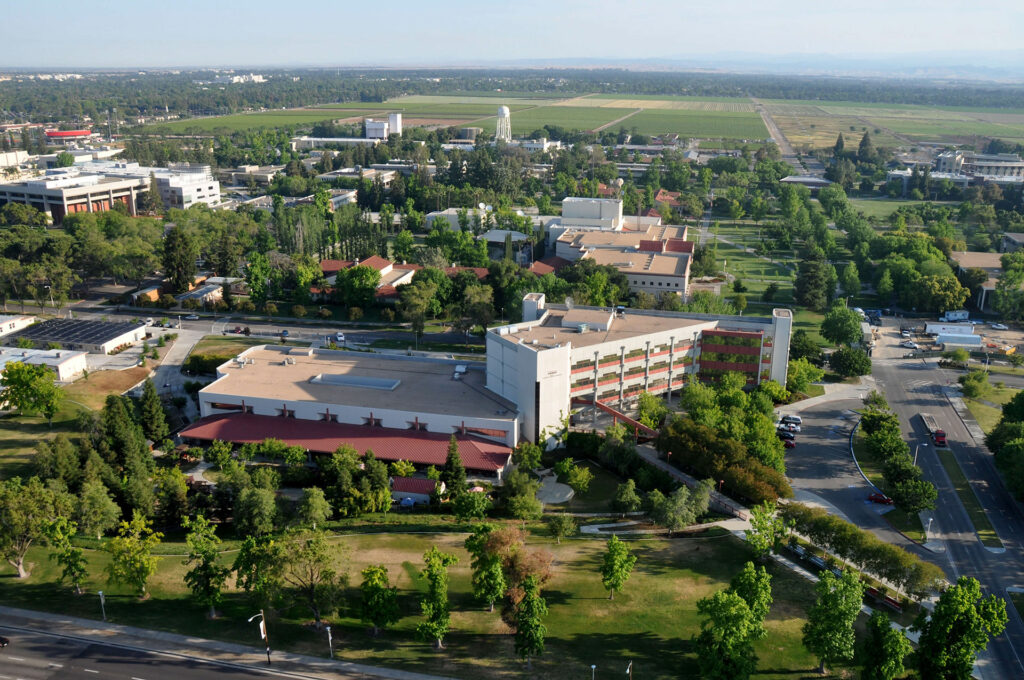
Black teachers: How to recruit them and make them stay

Lessons in higher education: What California can learn

Keeping California public university options open

Superintendents: Well-paid and walking away

The debt to degree connection

College in prison: How earning a degree can lead to a new life

The California State University Chancellor’s Office announced Tuesday that it had launched an independent investigation at the request of the system’s trustees into how Fresno State University officials handled sexual harassment reports between 2014 and 2019.
During that time, Frank Lamas, former Fresno State vice president for student affairs, was accused of sexual harassment “at least a dozen” times, according to a USA Today investigative story published last month. Former CSU Chancellor Joseph I. Castro served as Fresno State president at the time and failed to take disciplinary action, according to the report. Castro resigned as CSU chancellor last month following the USA Today report.
“It is important that we understand how campus leaders at Fresno State responded to workplace concerns about Frank Lamas,” said Lillian Kimbell, chair of the CSU board of trustees. “We will investigate the past to reveal potential new facts, learn and take appropriate action.”
The 23-campus system, which is the largest in the country, has hired the San Francisco-based Cozen O’Connor law firm to review Title IX practices and support systems at each campus. That assessment will begin in March at Fresno State.
Acting CSU Chancellor Steve Relyea said the system wants to “fortify our commitment to be leaders of Title IX innovation and response.”
Title IX of the Education Amendments of 1972 is a civil rights law that protects people in educational settings that receive federal financial assistance from sex-based discrimination.
The Chronicle of Higher Education obtained a 43-page report dated April 7, 2020, on a CSU investigation of one complaint made by a subordinate of Lamas in which the victim said Lamas touched her repeatedly, made comments about her body and made comments of a sexual nature.
The woman told a CSU investigator that she “left a job I loved and was good at” because of Lamas’ conduct.
A “preponderance of the evidence” against Lamas showed he “engaged in inappropriate behavior” that included “adjusting her bra strap,” and attempting to “meet (her) behind closed doors and closed blinds.”
Lamas made “repeated denials he engaged in any such conduct,” the report states.
Lamas left Fresno State on Dec. 31, 2020, with a $260,000 payout, retirement benefits and a clean record, USA Today reported. In a statement following the newspaper report, Lamas said the allegations “lack legitimacy and are false.”
He said he “chose to retire from Fresno State December 31, 2020. I received an outstanding letter of reference from my supervisor then President Joseph Castro and positive evaluations every year I was at the university.”
Castro became Fresno State president in 2013 and hired Lamas in 2014. Castro was named chancellor in the fall of 2020 and started the job on Jan. 4, 2021.
Castro never formally disciplined Lamas, and he was paid to leave the university after an investigation into an accusation that Lamas implied he would help an employee get promoted in exchange for sexual favors. Prior to his resignation, Castro said he took all allegations against Lamas seriously but that the university could not formally investigate any of them until a formal complaint was filed in 2019.
CSU also announced that it has revised a policy allowing an administrator to retreat to a faculty position. Fresno State officials said Lamas wasn’t outright fired from the university because of “retreat rights” in his contract. That provision gives administrators the right to become faculty members if they’re fired from their management position. Fresno State officials said that a settlement agreement was the only way to permanently cut ties with Lamas. CSU will now issue a consistent retreat rights policy for all 23 campuses.
The new systemwide policy prohibits administrators from taking on faculty positions if they have been found to have engaged in sexual harassment or certain other types of misconduct.
“That opportunity to retreat should be extended to individuals in good standing with the CSU, not to individuals who have engaged in significant misconduct,” Relyea said. “The policy needs systemwide clarity, consistency, and modernization, thus we are reforming it.”

Part-time instructors, many who work for decades off the tenure track and at a lower pay rate, have been called “apprentices to nowhere.”

A bill to mandate use of the method will not advance in the Legislature this year in the face of teachers union opposition.

Nearly a third of the 930 districts statewide that reported data had a higher rate of chronic absenteeism in 2022-23 than the year before.

The move puts the fate of AB 2222 in question, but supporters insist that there is room to negotiate changes that can help tackle the state’s literacy crisis.
Comments
Comments Policy
We welcome your comments. All comments are moderated for civility, relevance and other considerations. Click here for EdSource's Comments Policy.